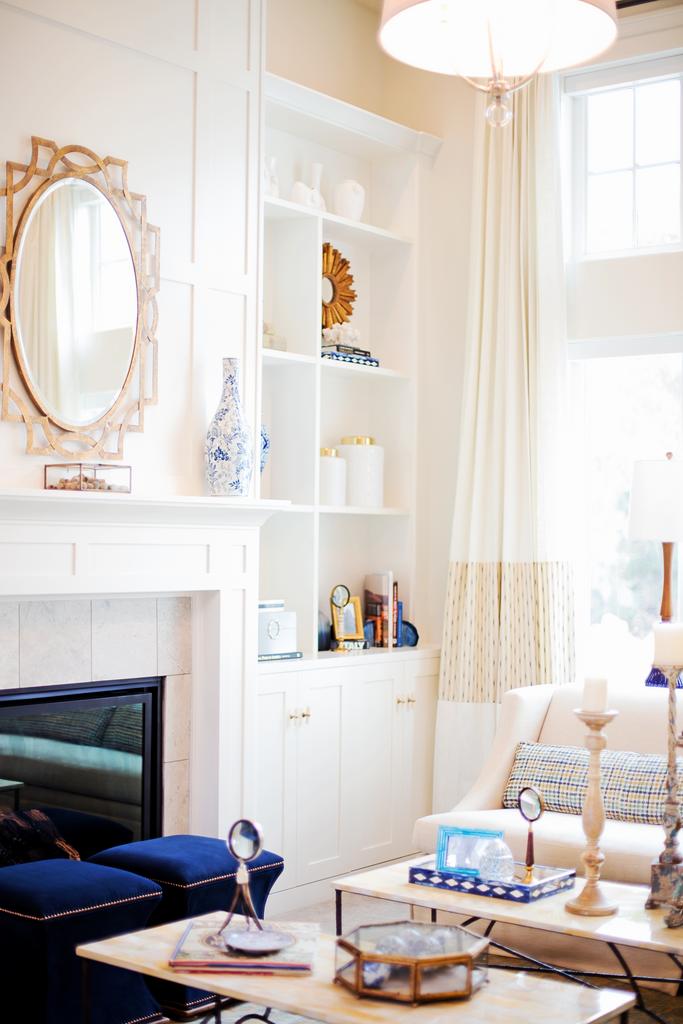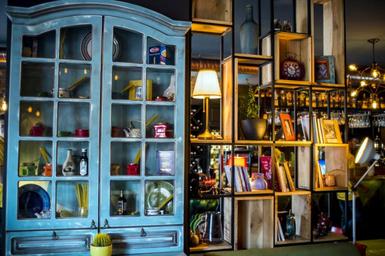In an age where individualism is celebrated and personal stories are shared through various mediums, the importance of self-expression in our living spaces has never been more pronounced. Your home should serve as a canvas that reflects who you are, your experiences, and your artistic inclinations. In this comprehensive exploration, we delve into the intricate world of artistic self-expression, offering insights into how to transform your living space into a true representation of your identity.
Artistic Self-Expression: Transforming Your Living Space into a Canvas of Identity
Artistic self-expression through decor allows individuals to create environments that resonate with their unique identities. It’s about translating feelings, memories, and aspirations into tangible forms within one's living space. By using various elements such as color, texture, art pieces, and furniture styles, you can curate an atmosphere that not only invites comfort but also serves as an extension of yourself.
The Importance of Self-Expression in Interior Decor
Self-expression is vital for mental well-being. When we surround ourselves with things that resonate with our identity—be it through colors or textures—we cultivate a sense of belonging and peace in our spaces. This aligns closely with the concept of creating inviting spaces that welcome both inhabitants and visitors alike.
Why Does Your Space Matter?
Your environment plays a crucial role in shaping your mood and daily experiences. A well-curated space can uplift your spirits, inspire creativity, and even enhance productivity. When thinking about interior decor inspiration, consider how each element contributes to the overall narrative you wish to convey.
Visual Storytelling in Design: Crafting Narratives through Decor
Visual storytelling is at the heart of effective interior design. Every piece you choose tells part of your story—a journey through time and experience reflected in colors, textures, and arrangements.
Integrating Personal Stories
Incorporate items that hold personal significance—travel souvenirs or family heirlooms can serve as conversation starters while adding depth to your decor. Therefore, when selecting wall art placement or furniture style, think about what each piece says about you.

Combining Colors and Textures: The Artistry Behind Harmony
Color theory is paramount in creating spaces that evoke specific feelings. Warm colors like reds and oranges can stimulate energy and excitement, while cool tones promote calmness https://thoughthub905.bravesites.com/entries/general/Photographer-s-Insight-The-Magic-Behind-Rare-Home-Interior-Images and relaxation.
Tips for Color Selection
Identify your favorite colors. Explore complementary shades. Experiment with textures—mix soft fabrics with hard surfaces for balance.Achieving harmony involves understanding how colors interact and affect mood creation in spaces.
Modern vs Traditional Styles: Finding Your Niche
When it comes to style preferences, some gravitate towards modern aesthetics characterized by minimalism while others cherish the charm of traditional designs rich with history.
Blending Styles for Unique Expression
Don’t shy away from mixing modern and traditional styles! Combining these approaches can lead to a unique expression that tells a multifaceted story about who you are.
Artistic Home Decor: Elements That Speak Volumes
Artistic home decor transcends mere aesthetics; it communicates identity through thoughtful selection.
Selecting Art Pieces Wisely
Choose artwork that resonates with you personally—whether it’s abstract self-portrait photography or contemplative photography reflecting your inner thoughts. Each piece should spark joy or provoke thought every time you glance at it.
Creating Inviting Spaces: The Role of Layouts
The layout influences how people move through a space—it dictates interactions between individuals within it.
Open vs Closed Layouts
Open layouts promote social interactions whereas closed layouts offer privacy—a balance between these two can create inviting spaces conducive for both gatherings and solitude.
Mood Creation in Spaces: Understanding Lighting Effects
Lighting often gets overlooked yet plays an essential role in setting the mood within a room.
Natural vs Artificial Light Sources
Utilizing natural light wherever possible creates warmth while strategic use of artificial lighting accentuates focal points such as artwork or decorative pieces.

Reflection Through Interiors: Mirroring Personal Values
Your home should reflect not just aesthetic preferences but also values such as sustainability or cultural heritage.
Sustainable Decor Choices
Consider eco-friendly options including reclaimed wood furniture or upcycled art pieces—these choices not only showcase creativity but also align with contemporary values regarding environmental consciousness.
Balance in Design Elements: Achieving Cohesion
Design balance is crucial; too much clutter leads to chaos while too little may feel sparse or impersonal.
Techniques for Balance
Implement visual weight by distributing larger items around the room evenly alongside smaller accessories—this creates equilibrium without sacrificing personal touches!
Curating Your Personal Sanctuary: Zones for Relaxation & Creativity
Every individual needs their sanctuary—a space dedicated solely to relaxation or creative pursuits fosters well-being immensely!
Defining Separate Areas
Consider creating distinct zones within larger rooms by using rugs or divider panels; this helps define areas tailored specifically towards relaxation versus productivity!
Self-Portrait Photography as Home Art: Capturing Identity Visually
Self-portrait photography serves as both a powerful form of artistic expression and reflection on one’s identity journey over time!

How To Integrate Self-Portraiture Into Decor
Display framed portraits prominently along walls—they not only personalize living areas but also remind us constantly who we are at different stages throughout life!
Abstract Self-Portrait Photography: Exploring Depths Within Yourself
Abstract self-portraits can evoke emotions differently than traditional photographs; they challenge viewers’ perceptions allowing deeper exploration into one’s psyche!
Choosing the Right Abstract Pieces For Your Space
Select bold abstracts reflecting emotions resonating strongly during certain periods—hanging these pieces invites contemplation amongst guests while echoing personal narratives throughout interiors!
FAQ Section
What is artistic self-expression?- Artistic self-expression refers to conveying one's identity, emotions, beliefs, etc., through various forms like visual arts incorporated within home decor.
- Begin by identifying personal elements (colors/textures/art) that resonate deeply before experimenting with placements/layouts inspiring creativity/harmony throughout rooms.
- Absolutely! Blending styles creates unique statements showcasing different facets of individuality—in fact many successful designs incorporate both seamlessly!
- Color influences mood significantly—warm hues energize while cooler tones calm; careful selection promotes desired ambiance across diverse spaces.
- Yes! Lighting sets moods effectively enhances focal points ensuring dynamic visual storytelling within diverse settings!
- Distributing larger items evenly amongst smaller accessories achieves visual equilibrium preventing overwhelming cluttered feels whilst maintaining personalization!
Conclusion
Transforming your living space into a canvas representing your identity is no small feat; however, armed with knowledge about interior decor inspiration techniques like combining colors/textures thoughtfully curating personal sanctuaries becomes manageable! Embrace artistic self-expression fully—it holds transformative power capable revitalizing surroundings making homes true reflections individuality cherished every day! Remember—the beauty lies not merely aesthetic value but rather authentic representation stories waiting unfold each time wander its corridors!